Sree Chhatrapati Shivaji Maharaj
Early Life of Sree Chhatrapati Shivaji Maharaj
Sree Chhatrapati Shivaji Maharaj was born on February 19, 1630, in the hill fort of Shivneri, near Junnar in Pune district. His birth marked the beginning of a legendary saga in Indian history. He was born to Shahaji Bhosale, a Maratha general who served the Deccan Sultanates, and Jijabai, a woman of strong will and character. Jijabai played a crucial role in shaping his values and vision.
He was born to Shahaji Bhosale, a Maratha general who loyally served the Deccan Sultanate. His mother, Jijabai, was a woman of remarkable strength and unwavering character. Jijabai played a crucial role in shaping his values and vision. She had a profound influence on his development throughout his early years. Jijabai instilled in him a strong sense of duty, a deep commitment to justice, and an unbreakable love for his homeland. As a result of these early influences, his character was deeply moulded. This laid a firm foundation for his eventual rise as a warrior king and a passionate advocate for Swaraj (self-rule).
Rise to Power
At the age of 16, Shivaji Maharaj began his quest to establish a Maratha kingdom. His first major military achievement was the capture of Torna Fort in 1645. This victory was significant as it marked the start of his military career and the capture of his first fort. Over the next few years, he captured several other forts, including Kondana (later named Sinhagad), Rajgad, and Purandar. This expansion increased his control over the Pune region.
Shivaji Maharaj’s military tactics were innovative and unconventional. He employed guerrilla warfare, known as “Shiv Sutra,” to outmanoeuvre and defeat much larger and more powerful enemies. His ability to mobilize local support, knowledge of the terrain, and swift, surprise attacks earned him the nickname “Mountain Rat” among his adversaries.
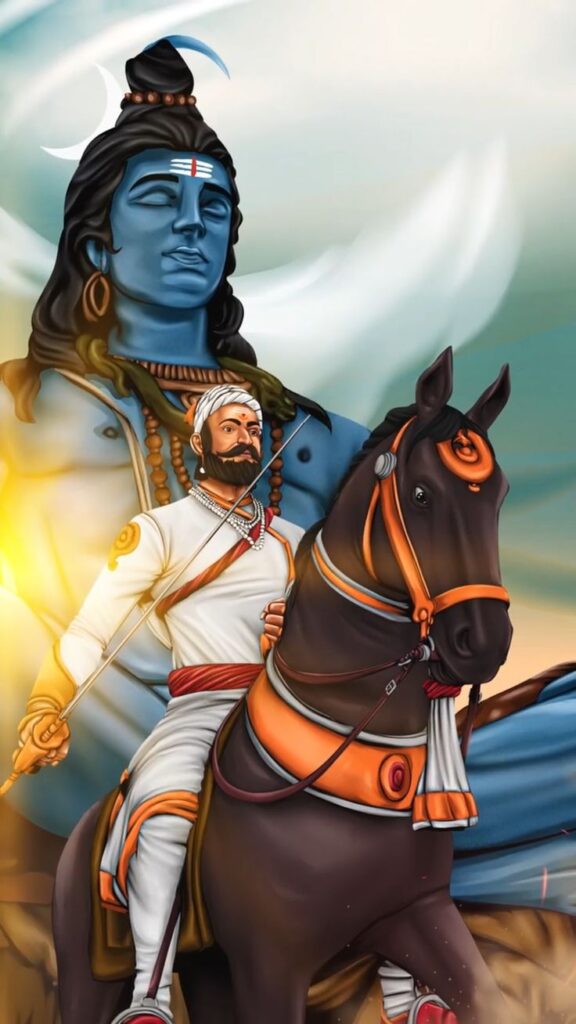
Religious and Social Policies
Shivaji Maharaj was a devout Hindu, yet he was also a secular ruler who respected all religions. He protected temples and places of worship belonging to all communities in his kingdom. He consistently upheld religious tolerance, ensuring harmony among different faiths. Furthermore, he did not permit any form of religious intolerance under his rule. His reign was marked by a strong commitment to social justice and equality. In addition, he focused on protecting the rights of women, peasants, and the downtrodden. Shivaji Maharaj was also known for his fair treatment of prisoners of war. Even towards his enemies, he maintained a humane and just approach.
Legacy and Death of Sree Chhatrapati Shivaji Maharaj
Sree Chhatrapati Shivaji Maharaj passed away on April 3, 1680, at Raigad Fort. With his death, an era ended. However, his legacy continued to thrive through the Maratha Empire. The Marathas persisted in resisting Mughal dominance, playing a vital role in the empire’s eventual decline.
Shivaji Maharaj’s legacy goes far beyond his military successes. He not only united the Marathas but also established a strong identity for them. Moreover, he acted as a visionary leader, inspiring his people with his principles. His ideas of governance, military strategy, and dedication to his people still inspire generations today. Furthermore, the concept of Swaraj, which he championed, became a symbol of India’s independence struggle.
Sree Chhatrapati Shivaji Maharaj is revered as one of India’s greatest heroes. He symbolizes resistance against oppression and injustice. Additionally, he remains a beacon of hope for those who value freedom and self-rule. His life and achievements are celebrated across India, especially in Maharashtra. There, he is honoured as a cultural icon and a source of immense pride for the Maratha people.
Shivaji’s life was an open book, the deeds of his life were a lesson to be taught to the generations to come.
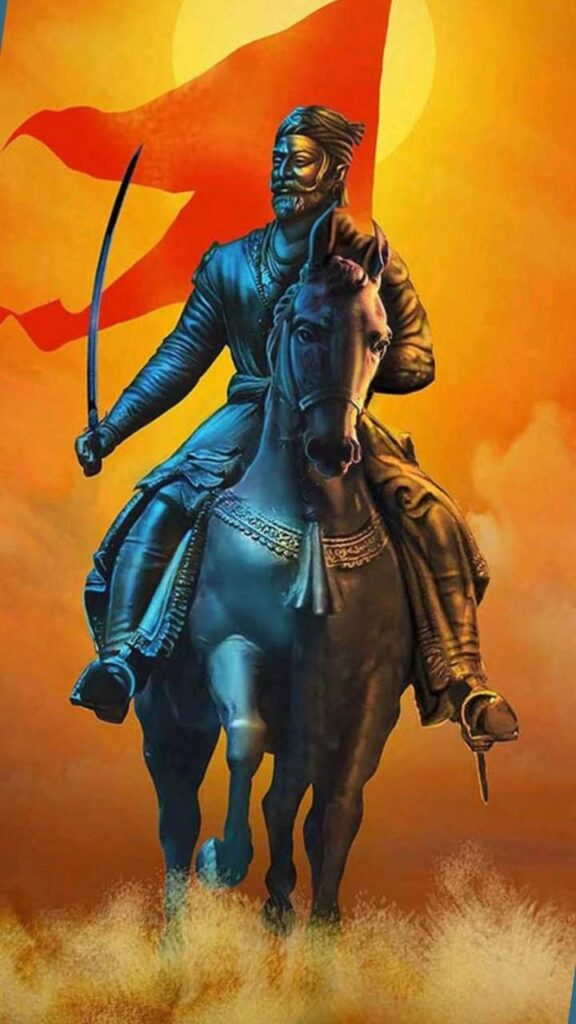
Establishment of the Maratha Empire
One of the most significant events in Shivaji Maharaj’s life was his coronation as Chhatrapati (sovereign king) on June 6, 1674, at Raigad Fort. This event formally established the Maratha Empire, with Shivaji Maharaj as its first king. The coronation was a grand affair, reflecting the cultural and political significance of the moment. It symbolized the rise of an indigenous Indian power, challenging the dominance of the Mughal Empire.
Under his rule, the Maratha Empire rapidly expanded, covering present-day Maharashtra, Karnataka, and parts of Tamil Nadu and Andhra Pradesh. Moreover, he implemented a strong and efficient administration, emphasizing justice, welfare, and military readiness. In addition, he established the Ashtapradhan Mandal, a Council of Eight Ministers, to improve governance. This innovative model ensured the efficient management of state affairs and further strengthened the empire’s foundations.
Military Campaigns and Naval Power
Shivaji Maharaj’s military campaigns are legendary, showcasing his exceptional leadership. In particular, he bravely fought against the mighty Mughal Empire, led by Emperor Aurangzeb. Despite their overwhelming power, he successfully resisted their repeated attempts to subjugate his kingdom. Furthermore, through strategic acumen and innovative tactics, he won several key battles. For instance, in the Battle of Pratapgad in 1659, he defeated Bijapur’s powerful general, Afzal Khan. Consequently, this victory further solidified his reputation as a brilliant and fearless leader.
One of Shivaji Maharaj’s most remarkable achievements was the establishment of a formidable navy. He recognized the importance of securing the western coast of India and built a fleet of warships. He also fortified key coastal areas, including the forts of Sindhudurg and Vijaydurg. This naval power enabled him to protect his kingdom from foreign invasions and control the lucrative trade routes along the Arabian Sea.
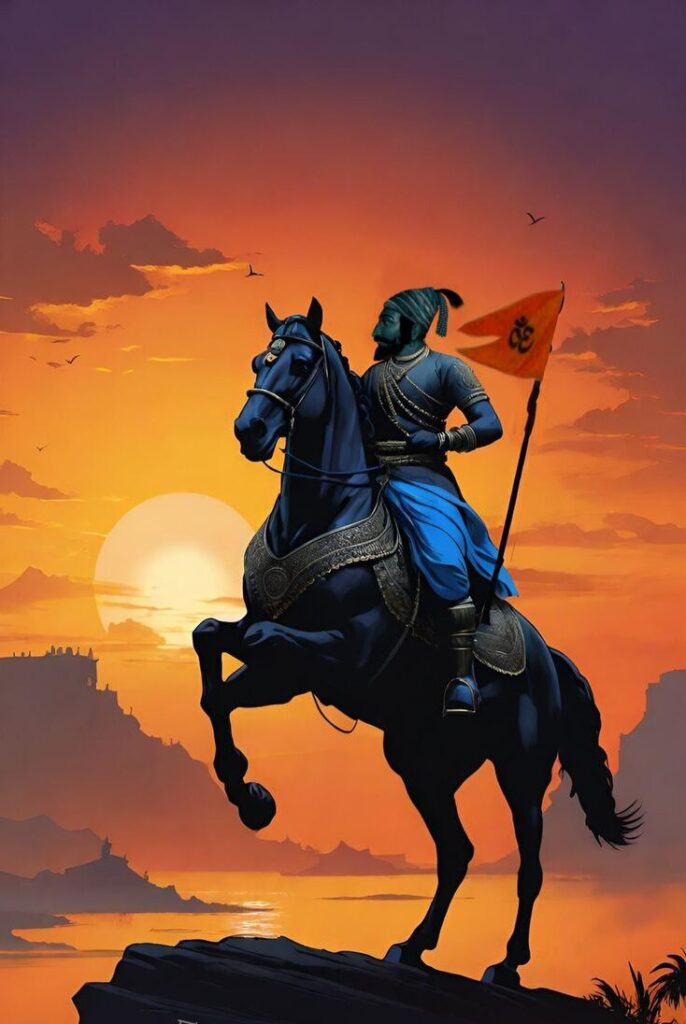
Sree Chhatrapati Shivaji Maharaj: The Architect of the Maratha Empire and His Enduring Legacy
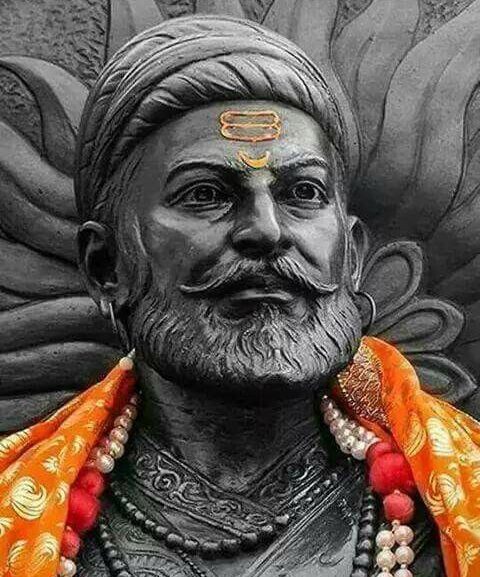
Creation of the Maratha Empire
Establishment of Swarajya: Shivaji Maharaj established the Maratha Empire with indomitable courage and strategic brilliance. He created Swarajya in a land dominated by the Mughal Empire and Bijapur Sultanate. To begin with, he seized forts like Torna, Rajgad, and Kondana, thus laying an unshakable foundation for his kingdom.
Majestic Coronation: In 1674, Shivaji ascended the throne as Chhatrapati at Raigad Fort, symbolizing the dawn of a new era. His coronation marked the formal establishment of the Maratha Empire and affirmed his rightful place as an independent and sovereign ruler.
Visionary Administrative Reforms of Sree Chhatrapati Shivaji Maharaj
Formation of the Ashtapradhan Mandal: Shivaji, keen on ensuring efficient and just governance, assembled a council of eight ministers, the Ashtapradhan Mandal. This council, including roles like the Peshwa, Amatya, and Senapati, showcased his commitment to a robust administration.
Fair and Just Revenue System: Shivaji instituted a Ryotwari land revenue system, where peasants owned their land and paid taxes directly to the state. This system bypassed feudal lords, thereby ensuring fairness and prosperity for the common people.
Promotion of Marathi and Sanskrit: Shivaji championed Marathi and Sanskrit in administration, elevating the cultural and linguistic identity of his people. He replaced Persian, widely used by the Mughals and other sultanates, with these native languages.
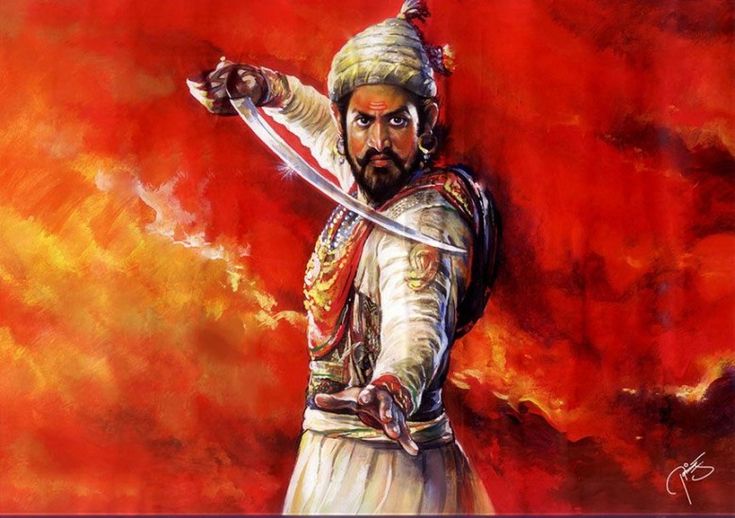
Master of Diplomacy: Sree Chhatrapati Shivaji Maharaj
Builder of Strategic Alliances: Shivaji’s diplomatic acumen was as sharp as his sword. He forged powerful alliances with regional powers like the Qutb Shahi dynasty of Golconda and the English East India Company. This secured the independence and expansion of his empire.
Architect of the Treaty of Purandar (1665): After a fierce confrontation with Mughal forces led by Raja Jai Singh, Shivaji negotiated the Treaty of Purandar. Despite some concessions, Shivaji retained power and positioned himself for a greater rise, showcasing his unmatched strategic mind.
Unmatched Military Prowess
Master of Guerilla Warfare: Furthermore, Shivaji Maharaj revolutionized warfare with his innovative guerrilla tactics, known as Ganimi Kava. By leveraging the rugged terrain of the Western Ghats to his advantage, he conducted lightning-fast raids, executed surprise attacks, and fortified strategic locations with unmatched precision.
Conqueror of Forts: Additionally, Shivaji captured and fortified numerous forts across Maharashtra, including the iconic Raigad, Sinhagad, Pratapgad, and Purandar. These bastions of power, in turn, became the nerve centres of his military might.
Triumph over Afzal Khan: In 1659, Shivaji secured a legendary victory over Afzal Khan, a formidable general of the Bijapur Sultanate. This victory took place at Pratapgad Fort, where Shivaji showcased his unmatched cunning and warrior spirit. In a personal encounter that echoed through history, he decisively defeated Afzal Khan.
Daring Escape from Agra: Furthermore, in 1666, Aurangzeb, the Mughal Emperor, attempted to imprison Shivaji in Agra. However, Shivaji orchestrated a daring escape, evading the emperor’s grasp. This bold act further demonstrated his extraordinary cunning and invincibility.

Mastery of Naval Power
Creator of a Mighty Navy: Understanding the importance of naval supremacy, Shivaji took the bold step of building a formidable Maratha navy. He established impregnable naval forts like Sindhudurg and Vijaydurg. He also commanded a fleet that guarded the Konkan coast against foreign threats, including the Portuguese and Siddis.
Guardian of the Arabian Sea: By asserting control over the western coastline, Shivaji ensured that the Maratha Empire ruled the Arabian Sea. His naval prowess, therefore, stood as a testament to his visionary leadership, unrivalled in Indian history.
Champion of Hindu Culture
Reviver of Hindu Temples: Being a devout Hindu, Shivaji undertook the noble task of reviving and protecting Hindu culture and religion. He rebuilt and renovated temples that had suffered under previous rulers, thus restoring them to their former glory.
Protector of Women and Religious Harmony: Shivaji Maharaj held women in high regard, ensuring their safety and dignity in a time when such respect was rare. His reign exemplified religious tolerance, employing Muslims in his administration and army and treating all faiths with respect and fairness.
Enduring Legacy
Inspiration for Generations: Shivaji Maharaj’s monumental achievements laid the groundwork for the Maratha Empire’s expansion under his successors. His son Sambhaji and later Peshwas like Baji Rao I continued this expansion. His legacy as a warrior-king who fought for Swarajya (self-rule) continues to inspire millions across India.
